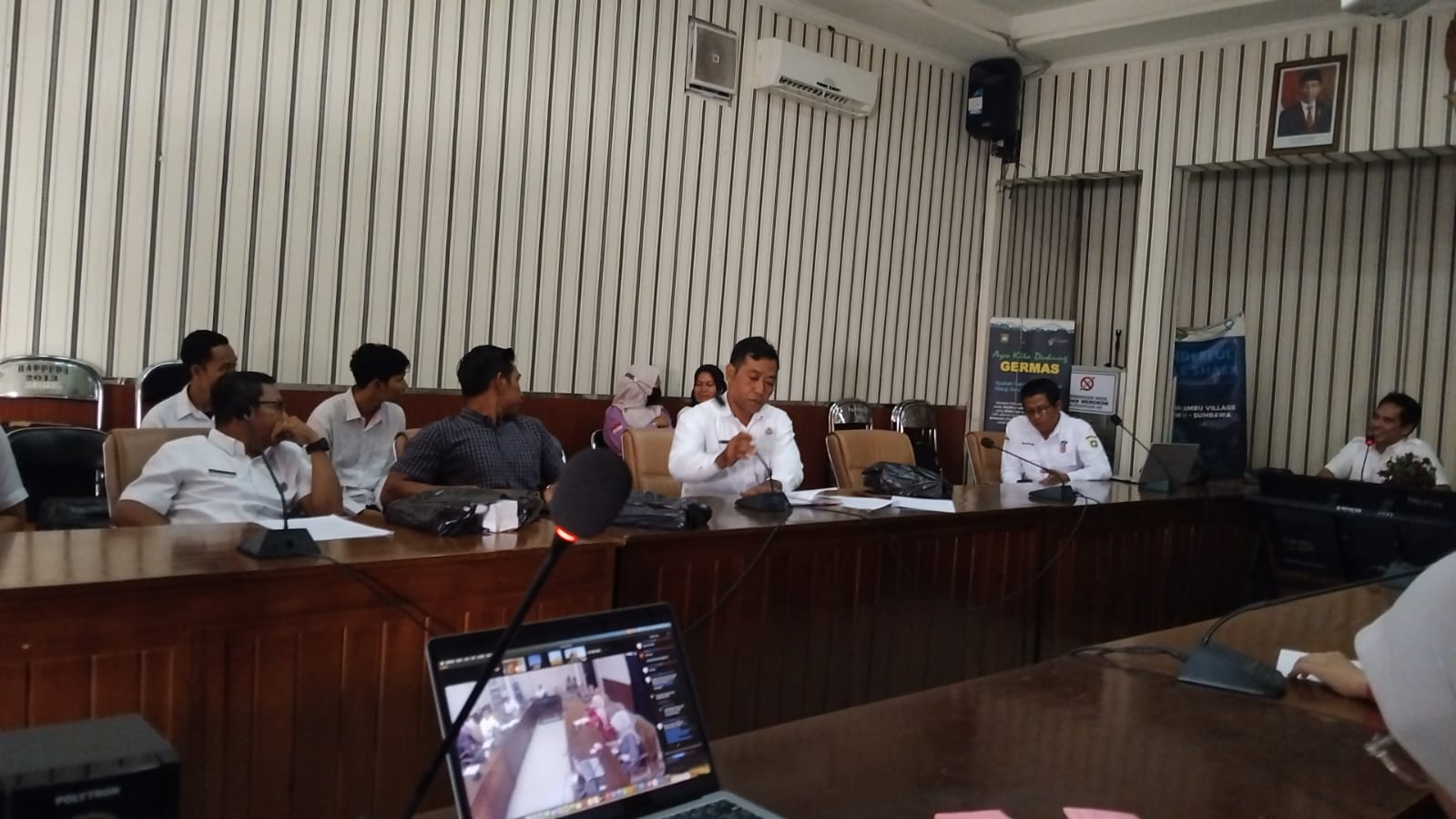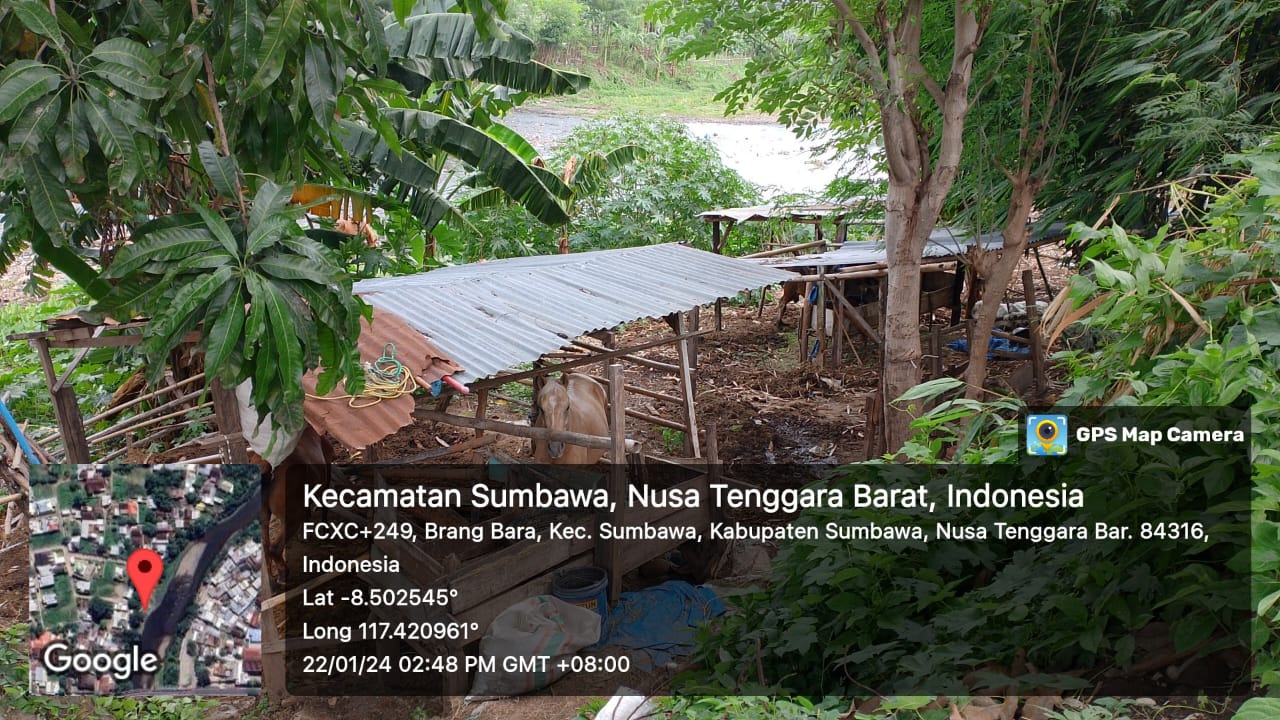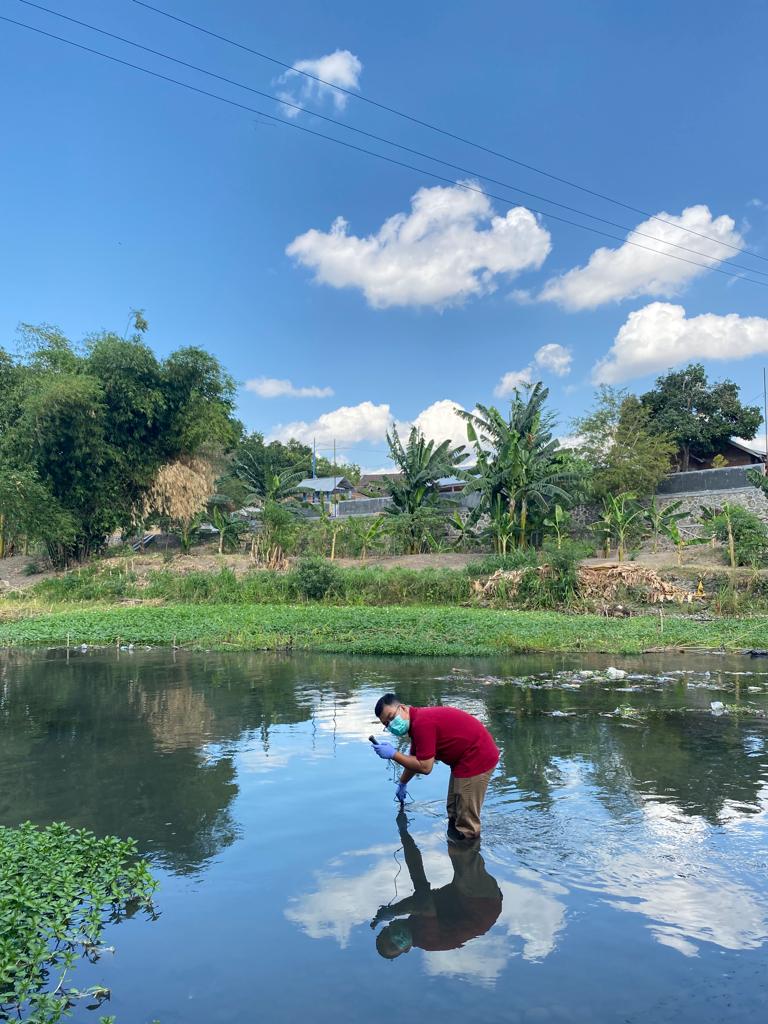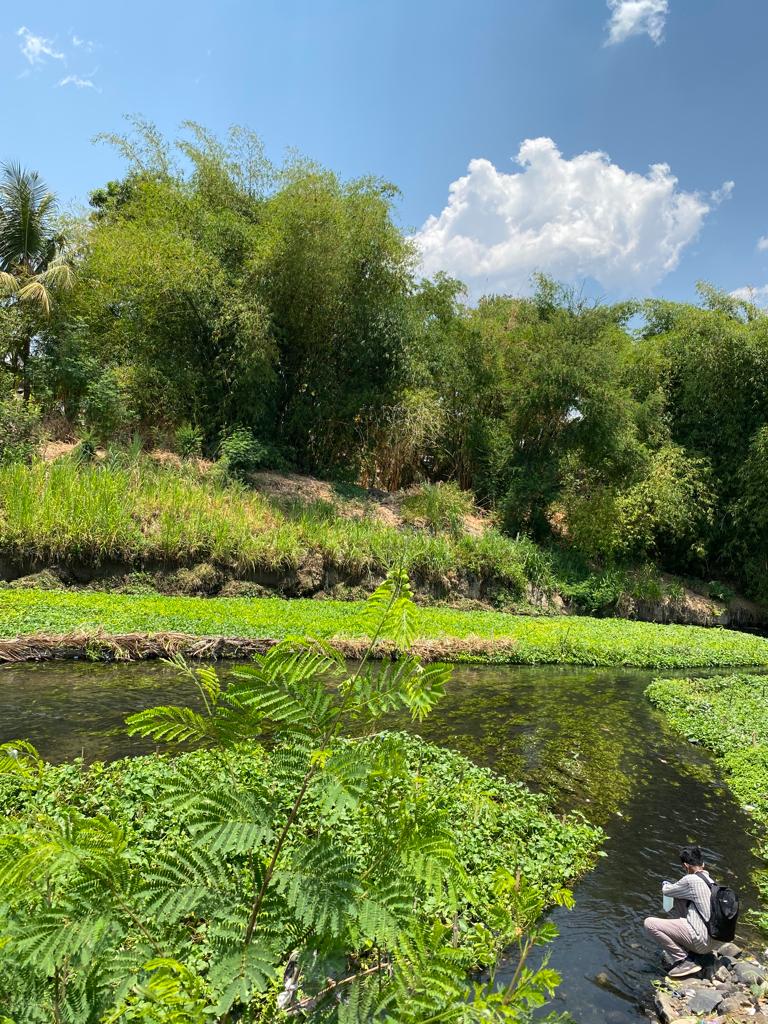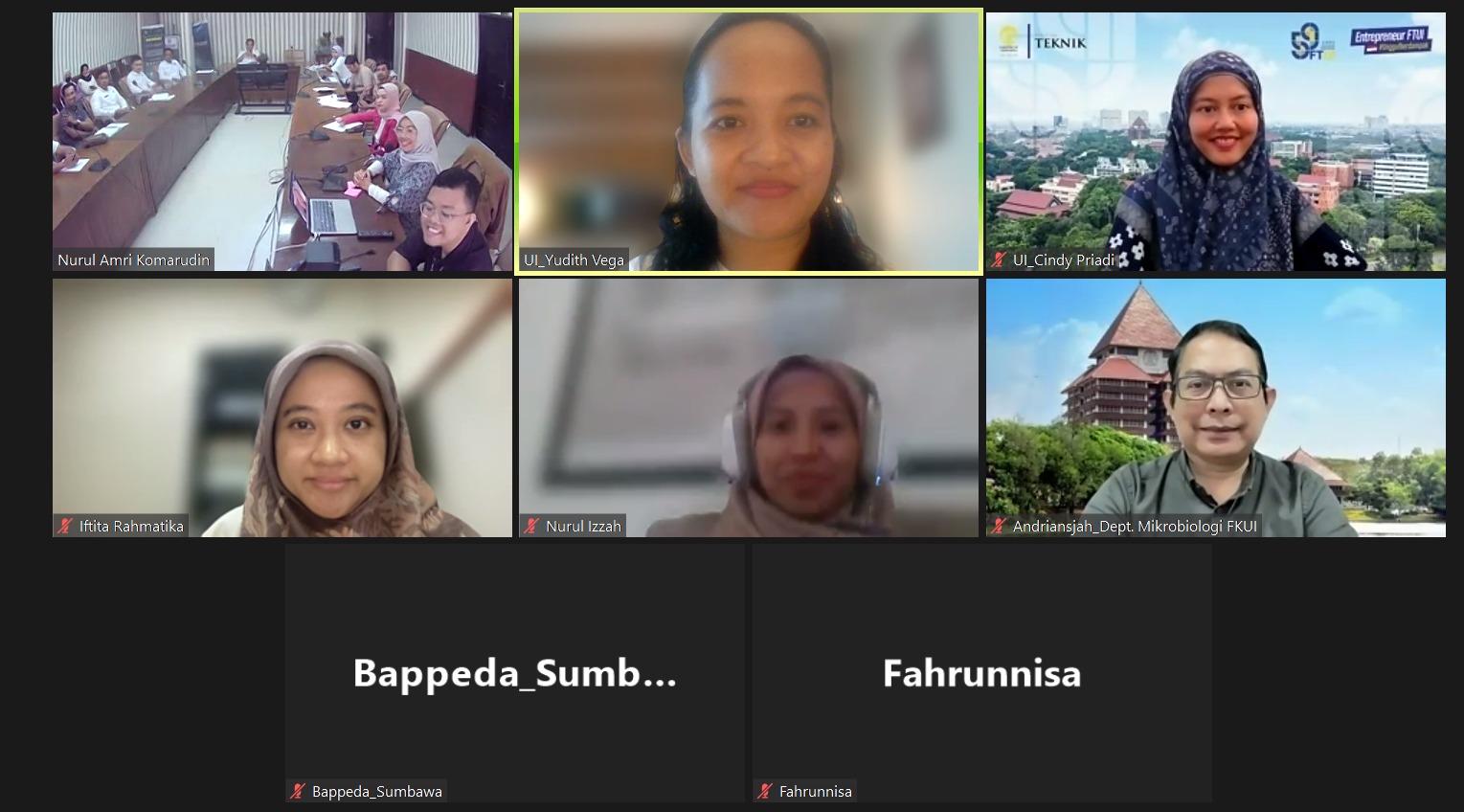Two faculties from the University of Indonesia (UI), namely the Environmental Engineering Study Program (PSTL) of the Faculty of Engineering (FT) and the Microbiology Department of the Faculty of Medicine (FK), conducted research entitled Implementation of One Health in the Ruminant Livestock Sector: Integration of Water, Sanitation and Hygiene (WASH) and Biosecurity for Prevention of Antimicrobial Resistance Bacterial Infections against Livestock Communities. This research was also conducted in collaboration with the Environmental Engineering study program and the Communication Science study program of the University of Technology Sumbawa (UTS).
With funding support from the Research and Community Service Information Base (BIMA) of the Ministry of Research and Technology, this research team focused on strengthening the knowledge of livestock communities in adopting healthy behaviours through the Community-Based Sanitation Program (STBM). The research was conducted from August to December 2023 along the Brang Biji River, Sumbawa. This river has a main length of 33.2 km, flowing from Sumbawa Bay towards the Flores Sea, passing through 7 villages in Sumbawa Regency. The presence of this river is crucial for the communities along its banks as it is used for daily needs such as bathing, washing, and sanitation.
Based on the research conducted, the team obtained an overview of the existing behaviours of livestock communities based on the implementation of STBM by the Sumbawa Regency government over the past five years. Sumbawa Regency was chosen because it represents livestock activities in Eastern Indonesia, with the number of livestock household enterprises (RUTP) accounting for 0.64% of the total RUTP in Indonesia.
“Generally, the people of Sumbawa and specifically the livestock communities heavily rely on the Brang Biji River ecosystem, as the river used for sanitation and agricultural irrigation. The extensive and semi-extensive farming of cattle, buffalo, and horses along the banks of the Brang Biji River by the livestock communities sets them apart from livestock communities along other rivers in Indonesia,” said Edi Nusantara, S.Sos., MT., Head of the Sumbawa Regency Development Planning Agency (Bappeda), during the research dissemination event at the Bappeda Office in Sumbawa Regency (03/27).
This dissemination was attended by various stakeholders in Sumbawa Regency, including Bappeda of Sumbawa Regency, the Livestock Office of Sumbawa Regency, Sub-district Heads of Sumbawa, Village Chiefs of Pekat, Brang Bara, Samapuin, Lempeh, and Brang Biji, Plan International Indonesia Foundation, Integrated Water Resources Management Forum (PSDAT) of Sumbawa Regency, as well as the UI research team and the UTS research team.
Dr Cindy Rianti Priadi, ST., MSc., Head of the Environmental Engineering Study Program at FTUI, conveyed, “The health impacts resulting from not implementing STBM can be severe, both for the environment and the community. Open defecation and untreated wastewater can contaminate water supplies and support the spread of diarrheal diseases such as cholera. Vulnerable groups exposed to cholera, according to UNICEF, are children. One-quarter of all children under the age of five in Indonesia suffer from diarrhoea. Even adults can be exposed to diarrhoea due to contaminated water for sanitation purposes, one of which is E. coli.”
According to Edi Nusantara, this research is in line with the routine studies conducted by Bappeda. He also provided additional information regarding the socio-cultural conditions of livestock communities along the Brang Biji River, “The majority of ethnic groups living along the Brang Biji River are not indigenous, thus their values and norms differ from the original Samawa ethnic group. This condition makes communication with livestock communities living along the riverbanks difficult.”
One of the researchers from PSTL FTUI, Dr. Iftita Rahmatika, ST., M.Eng., added, “Livestock communities as well as the general population living around the Brang Biji River can be exposed to fecal bacteria commonly found as an indicator of water quality, namely E. coli. Currently, E. coli resistant to antibiotics, especially those from the beta-lactam group, can directly or indirectly expose humans through the use of river water for sanitation. Those exposed may be difficult to treat with conventional antibiotic treatments as they have developed antibiotic resistance, resulting in higher mortality risks.”
Water quality surveys with E. coli resistance parameters to beta-lactam groups have also been conducted at points representing the 7 villages along the Brang Biji River. The survey aims to strengthen suspicions of Brang Biji River pollution due to anthropogenic activities. Based on the survey results, E. coli resistant to beta-lactam groups was found at 24% of survey points.
FTUI Dean, Prof. Dr. Heri Hermansyah, S.T., M.Eng., IPU., hopes that the research results can provide information for policymakers on the STBM program. “There are several input points from the team that need to be considered and improved in the future, such as ineffective communication regarding the sustainability awareness of the STBM program for livestock communities and the general population along the Brang Biji River, and the lack of technological application for livestock excreta management. Therefore, policymakers need to commit to funding the STBM program from both government and non-government sources,” said Prof. Heri.
***
Public Communication Office
Faculty of Engineering, University of Indonesia

